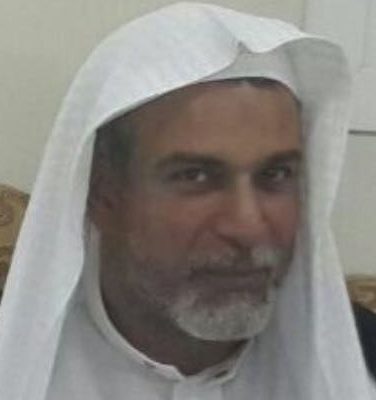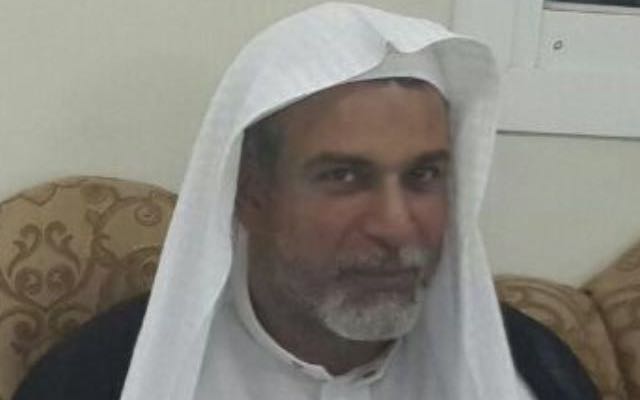
Samir bin Muhammad al-Hilal is a 67-year-old sheikh from Saudi Arabia. On the morning of 16 December 2015, Saudi security forces from the Ministry of Interior detained Samir as he left his home for the day. Though no one has been able to visit him since he was taken away, nor has any information in regard to his detention been made available to his family, evidence indicates that he is being held at al-Ha’ir prison and that he has been subjected to physical mistreatment, possibly rising to the level of torture.
Prior to his detention, Samir lived with his two wives and newborn child in the al-Anud neighborhood of ad-Dammam, the capital city of Saudi Arabia’s Eastern Province. The morning the security forces abducted Samir, they intercepted him outside his home, aimed their guns at him, and moved him into a car. Then they proceeded to search his home, where his wife asked them to give her a moment as her husband was out and she was not prepared to receive strangers. They disregarded her and entered immediately, also preventing his wife’s older son from entering the house until the search was over (which took approximately an hour and a half). The agents also searched Samir’s second wife’s home, where they confiscated electronic equipment and documents.
To date, over a year and a half after his detention, his family has not been granted a single visit, despite their numerous calls and letters requesting news and visitation rights. They have even gone to al-Ha’ir prison, which is in Riyadh, far from their home in the Eastern Province, in order to seek any information about his location and status. He has been allowed to call his family only twice, both times for no more than ten minutes. The family felt that their phone calls were monitored because of the unnatural way Samir spoke to them. Furthermore, there is no defense attorney currently representing Samir due to the actions of the Saudi authorities, who rejected a request for issuance of a power of attorney naming a lawyer of the family’s choice.
Samir’s family has yet to receive an indictment listing the charges against him, or any other documents or explanations concerning his detention. The day he was detained, the agents did not present a warrant for either the search of the home or for his arrest. Though Samir had never been informed that he was wanted for any reason prior to his detention and no official charges have been pressed against him, his family believes, based on the questions asked when they were interrogated themselves, that he is being accused of financing terrorism. Because of the breadth of Saudi laws criminalizing different kinds of money transfers as “financing of terrorism,” these accusations are dubious.
Witnesses who have seen Samir in detention have reported that he had contusions on his face and that his clothing was shredded – obvious indications of physical mistreatment. Given the prevalence of torture in Saudi Arabia, the working assumption, unless disproven, has to be that Samir has been abused in detention. Physical or mental abuse inflicting “severe pain or suffering” is criminal under the Convention Against Torture, to which Saudi Arabia is a party.
Samir has been deprived of his rights even according to Saudi law. Article 35 of Saudi Arabia’s System of Criminal Procedure (Arabic: niẓām al-ijrā’āt al-jazā’īyah) states that “no person may be detained or arrested save by order of the competent authority.” Article 36 reads, “The person arrested … shall be informed of the reasons for his arrest, and has the right to contact whomever he sees fit to notify of his arrest.” Americans for Democracy & Human Rights in Bahrain (ADHRB) has raised Samir’s case before several UN special procedures offices, in the hope of securing his human and legal rights against the abuses of the Saudi government. Because there is little hope that Saudi Arabia will give redress to victims like Samir without pressure, ADHRB calls on the international community, and especially Saudi Arabia’s chief security partners in the US and UK, to halt security cooperation with Riyadh while Saudi citizens continue to live without security from their own government.





